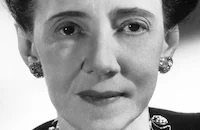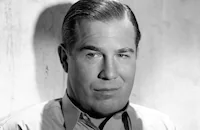Play Girl

Brief Synopsis
Cast & Crew
Ray Enright
Winnie Lightner
Loretta Young
Norman Foster
Guy Kibbee
Dorothy Burgess
Film Details
Technical Specs

Synopsis
A beautiful but ambitious young woman named Buster Green attends a dance with her boyfriend Elmer, who has agreed to provide a date for Buster's roommate, Georgine Hicks, her co-worker at the Mayfield Department Store. The blind date, Wallie Dennis, turns out to be a handsome, carefree man who immediately falls for Buster. After a whirlwind romance, they marry and travel to Canada, where Buster is impressed by Wallie's generousity, but is unaware that he is getting his money from gambling. Wallie hits a losing streak, and when Buster discovers the truth, he vows to reform. After they return home from their honeymoon, Wallie breaks his promise, and even when he learns that Buster is pregnant, he cannot stop his compulsion. Buster believes Wallie has withdrawn money from their savings account to spend gambling and throws him out, only learning later that he used the money to buy a baby carriage. Forced to return to work at Mayfield's, she uses her meager earnings to bet on a horse named "Baby Mine." The horse wins but the bookie pockets her money and tells her that instead of playing her hunch, he placed her bet on the favorite. By coincidence, Wallie is there and starts a fight with the bookie to get his wife's money. A police raid interrupts them and the couple is arrested. Because Buster is pregnant, the police send her to the hospital and let Wallie off without a charge. Buster, who has been terribly afraid of childbirth because her mother died giving birth to her, is comforted by Wallie's return and they are reconciled. They have a baby girl and Wallie bets that their next child will be a boy.

Director
Ray Enright
Cast

Winnie Lightner

Loretta Young

Norman Foster

Guy Kibbee

Dorothy Burgess
Noel Madison

James Ellison

Edward Van Sloan
Polly Walters

Mae Madison
Eileen Carlisle
Renee Whitney

Elizabeth Patterson

Adrienne Dore
Velma Gresham
Jack Curtis
Betty Barrington
Robert Bennett
Harold Waldridge
Charles Coleman

Nat Pendleton

Ralf Harolde
Joyce Farfane
Sheila Manners
Crew
Alma Armstrong
Lucille D'antoine
Mary Dery
Perry Finnerman
Leo F. Forbstein
Freddie Fox
Maude Fulton
Oliver S. Garretson
Esdras Hartley
Brook Holder
Brown Holmes
Earl Luick
Owen Marks
Virginia Moore
Howard Oggle
Curt Rehfeld
Bert Shipman
Gregg Toland
Richard Towers
Homer Van Pelt
Maurine Watkins

Film Details
Technical Specs

Articles
Play Girl
By Violet LeVoit

Play Girl
Play-Girl
Director: Ray Enright
Screenplay: Maurine Watkins (screenplay);Maude Fulton, Brown Holmes (adaptation and dialogue); Frederick Hazlitt Brennan (story)
Cinematography: Gregg Toland
Art Direction: Esdras Hartley
Film Editing: Owen Marks
Cast: Winnie Lightner (Georgine Hicks), Loretta Young (Buster 'Bus' Green Dennis), Norman Foster (Wallace 'Wally' Dennis), Guy Kibbee ('Finky' Finkelwald), Dorothy Burgess (Edna), Noel Madison (Martie Happ), James Ellison (Elmer), Edward Van Sloan (Moffatt, the Boss)
BW-61m.
Play-Girl
Quotes
Trivia
Notes
Warner Bros. records indicate that the film May have been based on an uncredited Faith Baldwin story. The film's working titles were Eight to Five and Love on a Budget. A news item in Film Daily notes that Norman Foster replaced Tom Brown as "Wallie."















